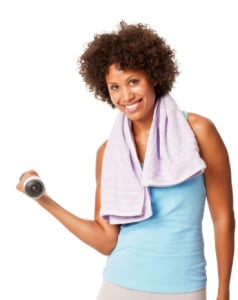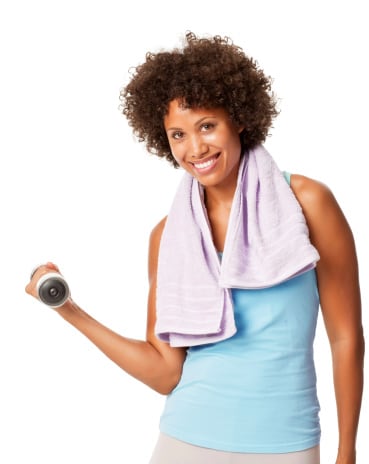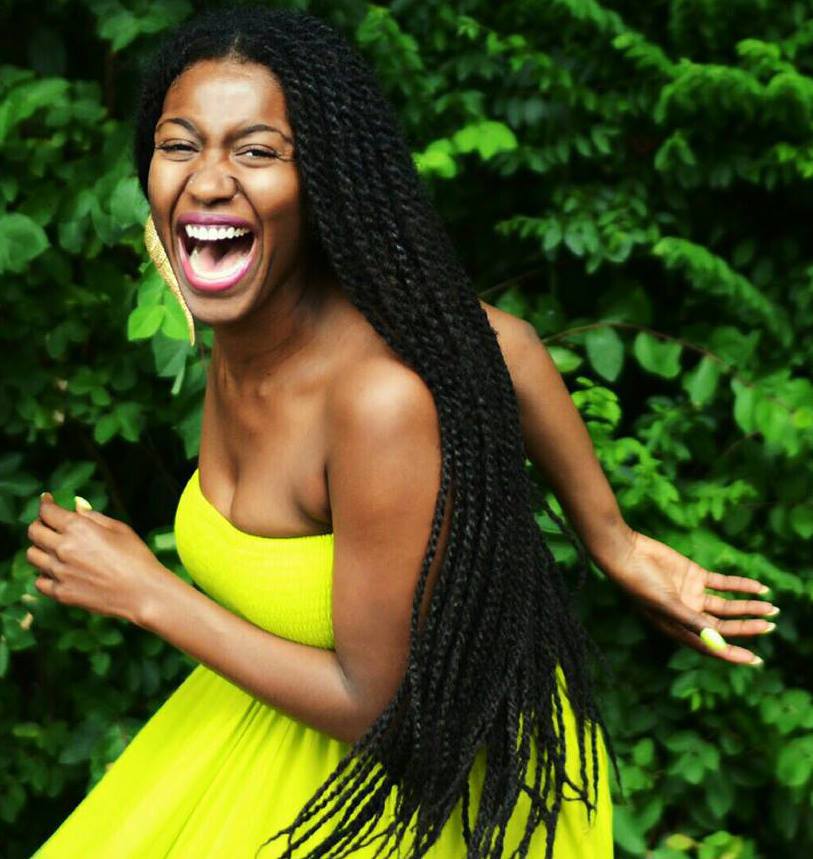A small study of black women, conducted at the University of Colorado in Denver, reports that some think it’s more important to protect their hair than to exercise.

Are hair concerns keeping you from working out? Look for more natural and lower-maintenance hairstyles to keep your hair and your body in top shape. (Neustockimages/Getty Images)
The good news is that many of the women studied said they were working to find ways to keep their hair and their bodies in top shape by finding more natural, lower-maintenance hairstyles.
“There is some exciting news from this study,” said co–principal investigator Amy Huebschmann, MD, director of the university’s Center for Women’s Health Research. “We studied many African-American women who have already overcome these barriers by adjusting their hairstyles.”
For the study, 51 black women ages 18 to 75 were interviewed about the issues they perceived to be barriers to exercise. Researchers also assessed the women’s overall health and identified the factors that motivated the women to work out.
The women were then divided into two groups — exercisers (women who worked out at least 60 minutes a week) and non-exercisers (women who were active for less than 60 minutes a week). The rates of diabetes, prediabetes and arthritis were the same in both groups.
Some of the women said that a lack of money or discipline were barriers to working out, but among the women in the non-exerciser group, 29 percent said that hairstyle maintenance was the most common obstacle to breaking a sweat on a regular basis.
Only 7 percent of the black women in the exerciser group said their hair was a factor in their decision to exercise.
“We want to find solutions so women in the African-American community can get through these barriers and improve their health,” said the study’s co-principal investigator, Lucille Johnson Campbell, director of special initiatives for the Center for African American Health in Denver.
Keeping It Simple
While choosing looks over fitness may seem frivolous, some study participants expressed concerns about getting fired if they came to work with a lower-maintenance hairstyle such as braids. Though their concerns are understandable at a time when the United States Army has issued a ban on braids, twists and cornrows — even though one-third of the people on active duty are black women — some study participants said they thought most parts of the culture have become more accepting of natural hair.
To avoid problems and spending large amounts of time and money on post-workout hair, many of the women in the exerciser group said they opted for simple styles that required little upkeep. Their top choices were ponytails and braids.
Some Birth Control Pills Increase Breast Cancer Risk
Newer birth control pills with high doses of estrogen, and other formulations, may raise breast cancer risk in women under 50, according to a new study from the Fred Hutchinson Cancer Research Center in Seattle.
Overall, use of birth control pills within the past year was associated with a 50-percent increased risk of breast cancer compared with former use or no use of birth control pills.
Birth control pills containing high-dose estrogen, 50 micrograms or more, boosted breast cancer risk nearly threefold and those that contained moderate-dose estrogen, 30 to 35 micrograms, increased the chances about 1.6 times.
Low-dose estrogen pills, those containing about 20 micrograms, didn’t increase the risk, the study showed. If you are taking the pill and are concerned, talk with your physician about a possible change to a low-dose prescription.








